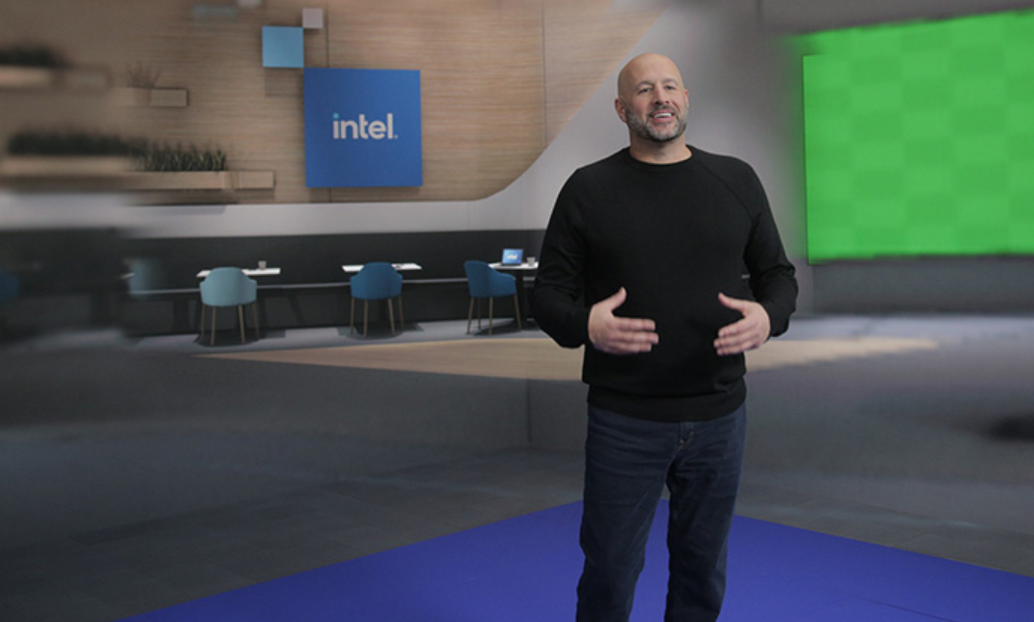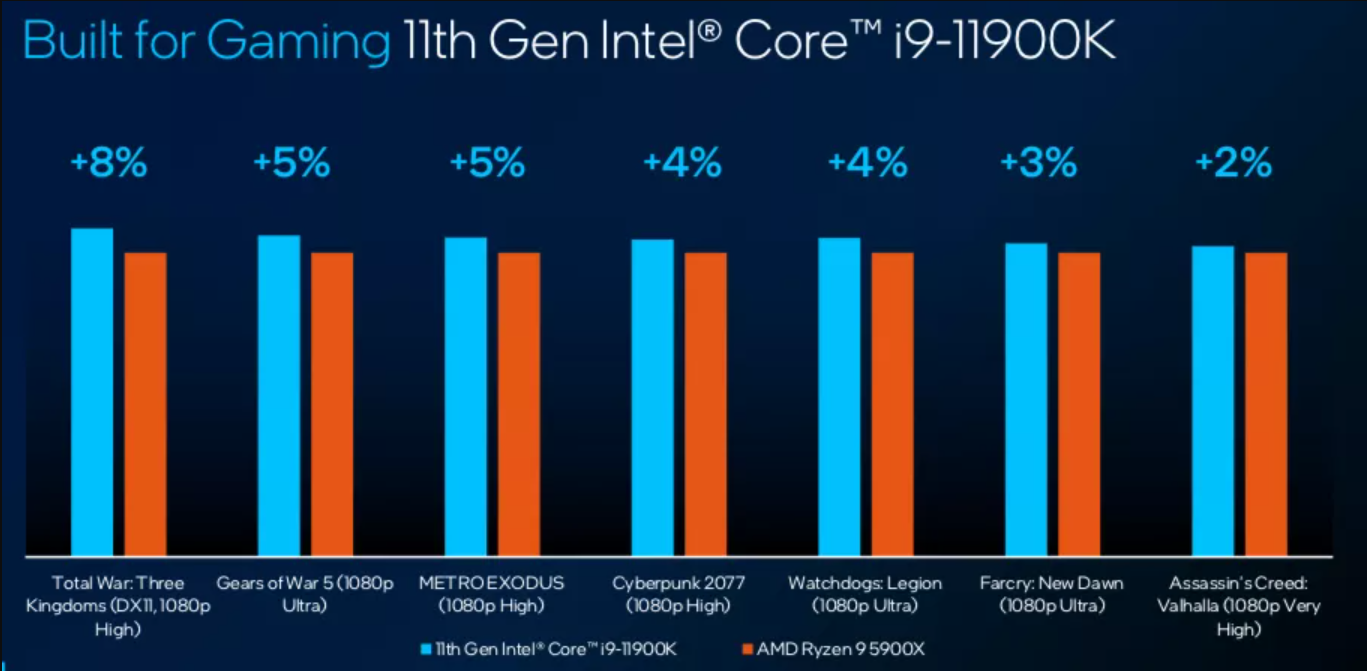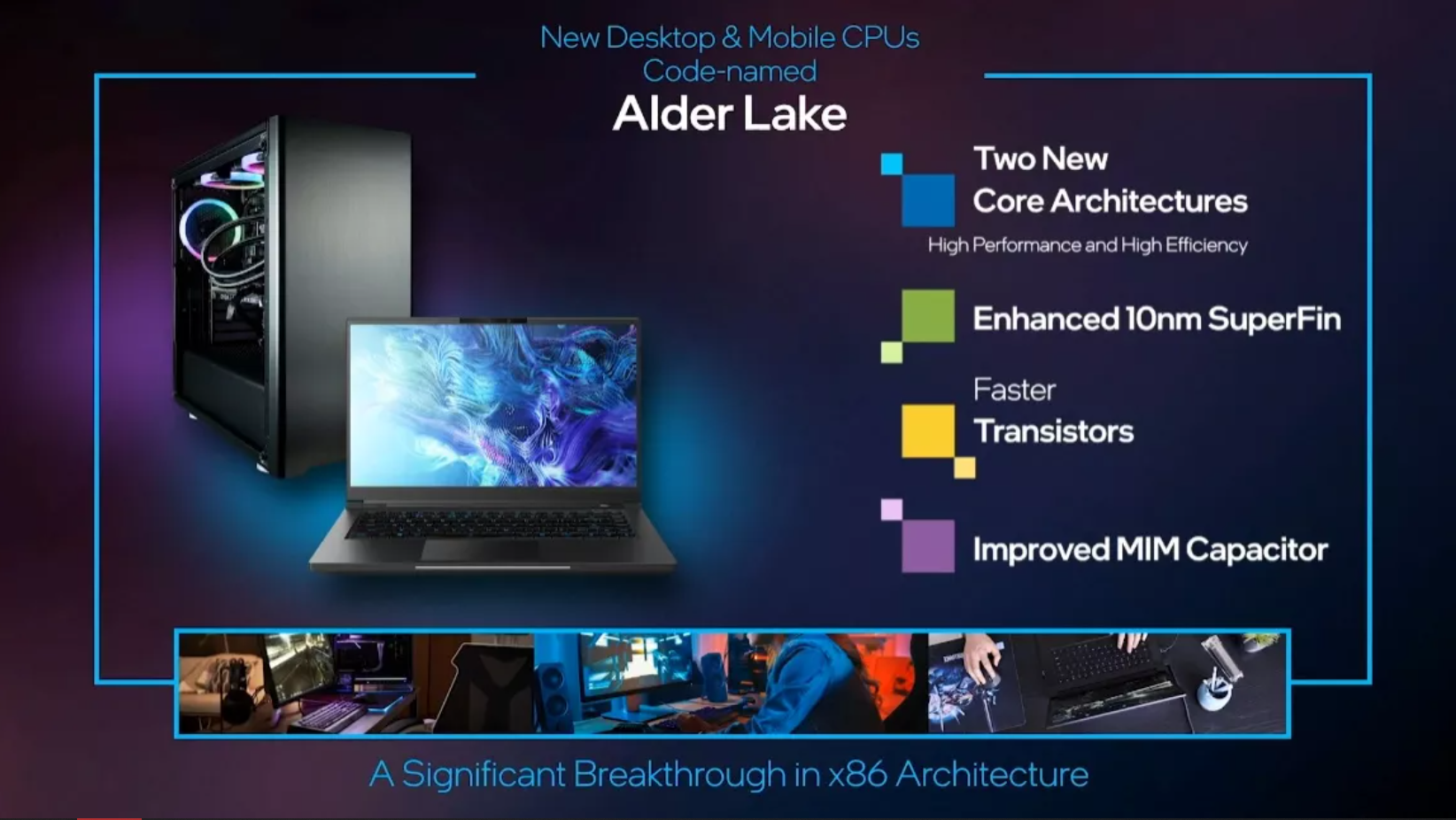 INFRA
INFRA
 INFRA
INFRA
 INFRA
INFRA
Intel Corp. took to the online stage at the Consumer Electronics Show today to unveil its latest families of computer processors, at a time when it faces stiff competition from rivals such as Advanced Micro Devices Inc. and Apple Inc. in the gaming, personal computing and mobile markets.
Intel said its four new chip families will be used in 50 different processor variants and power more than 500 new PCs that are set to launch this year. In addition, the company provided an update on its Ice Lake Xeon Scalable processors using its 10-nanometer chip process and showed off its next major chip release, the hybrid Alder Lake chipset.
The new chip families include the 11th Gen Intel Core H-series mobile processors designed for gaming laptops. The series, introduced by Intel Executive Vice President Gregory Bryant (pictured), will power more than 40 new gaming laptops that will be released in the first half of 2021, and should hit speeds of up to 5 gigahertz, providing the fastest single-threaded laptop experience available, Intel said.
The 11th Gen Intel Core H-series also boast a small form factor, with Intel boasting of a 16-millimeter Z-height that makes them suitable for thinner laptops. They also deliver an exceptionally long battery life for laptop models in the 14- to 15-inch category, Intel said.

The H-series chips have been rated for “smooth” 4K gaming with several popular titles including Destiny 2: Beyond LIght, Hitman III, League of Legends, Valorant, Grid, Star Wars Jedi: Fallen Order, Troy: A Total War Saga and Mount & Blade II: Bannerlord. The company also claimed more than 70-frames-per-second speeds in 1080p for other popular games.
Intel said the H-series chips will be used in gaming laptops sold by companies including Dell Technologies Inc., HP Inc., Lenovo Group Ltd., Acer Inc., AsusTek Computer Inc. and others.
Next up is Intel’s latest desktop processors, the Rocket Lake-S 11th Gen chips that accelerate gaming performance with claims of a 50% improvement in integrated graphics performance and gains of up to 19% on instructions per cycle. Intel said the chips also come with Enhanced Intel UHD graphics and support AV1 Decode and Intel Quick Sync Video.
The leading chip in this family will be the 11th Gen Core i9-11900K, an octa-core processor with 16 threads that’s rated for up to 5.3/4.8GHz, available in the first quarter.
For comparison purposes, Intel stacked up the 11900K chip against AMD’s most powerful Ryzen 9 5900X chip on a selection of games running at 1080p on High to Ultra. Intel’s chip came out on top, beating AMD’s chip by an average of 3% to 5% at 1080p/High on most of the titles.

The Pentium Silver and Celeron processors are based on a 10-nanometer architecture and Intel claims they provide up to 35% better overall application performance and up to 78% better gaming performance than previous editions.
Intel said these chips will also help to make faster Chromebooks with a performance improvement of up to 144%. In addition, Intel said they will deliver 78% faster speeds when creating a STEM project and 162% faster web application performance. The company also boasted of an “all school day battery life without charging.”
Intel has updated its 11th Gen Tiger Lake processors with integrated vPro technology for better performance, security, manageability and stability. vPro is an umbrella marketing term used by Intel for various technologies, including hyperthreading, Turbo Boost, VT-x, VT-d, Trusted Execution Technology and Intel Active Management Technology that are aimed at security-conscious and performance-minded users.
Intel reckons the new family offers some serious gains on the 10th Gen versions. In a comparison with the new Intel Core vPro i7-1185G7 and 10th Gen Intel Core vPro i7-10610U, Intel said the newer chip has a 19% better overall performance with applications, 21% faster web browsing, 17% faster performance on Microsoft 365 and 80% faster video editing.
The Intel vPro i7-1185G7 CPU also stands up well against the AMD Ryzen 7 Pro 4750U, with a 38% improvement in overall application performance.
The 11th Gen Intel Core vPro and Intel Evo vPro chips also come with Intel’s 10nm SuperFin technology, Iris Xe graphics and Wi-Fi 6, Intel said.
Analyst Patrick Moorhead of Moor Insights & Strategy told SiliconANGLE the new vPro chips are an example of the continued “platformization” of Intel’s PC technologies.
“Evo looks compelling, followed up by Evo vPro for businesses,” Moorhead said. “I think platforms favor Intel as it’s harder to compete with. As platforms come with a boatload of marketing dollars, manufacturers and the channel like them too.”
In other news, Intel said it has begun production of its new 10nm Ice Lake Xeon Scalable Processors for servers, with a volume ramp set to take place prior to shipping them out during the first quarter. Intel’s 10-nanometer Xeon Scalable processors come with architectural and platform changes that improve performance, security and operational efficiency inside data centers, Intel said.
“Our 3rd Gen Intel Xeon Scalable platform represents a strategic part of our data center strategy and one that we’ve created alongside some of our biggest customers to enable the data center of tomorrow,” said Navin Shenoy, executive vice president and general manager of the Data Platforms Group at Intel.
“I was glad to see the announcement on it shipping Ice Lake with volume this quarter,” Moorhead said. “This could be the biggest news of the day.”
Finally, Intel offered a preview of its next major chip release, its hybrid Alder Lake chipset that succeeds the Lakefield processor launched last year.
Just like its predecessor, the Alder Lake chips will be built on a 10-nanometer process and combine high-performance cores with high-efficiency cores into a single product, similar to Arm Ltd.’s BIG.little technology that’s used in Apple’s current M1 processors.

Perhaps the biggest difference is that the Alder Lake chips will serve as a foundation for Intel’s future desktop and mobile processors, whereas Lakefield was focused only on mobile devices.
Intel said the 12th Gen Alder Lake chips will use a new and enhanced version of its 10-nanometer SuperFin designs, which are already found in the 11th Gen Tiger Lake chips. The company also promised a new combination of high-power cores called Golden Lake and new Gracemont cores for efficiency gains.
“Alder Lake looks very interesting, but it’s hard to gauge its impact without better understanding performance per watt,” Moorhead said, noting that Intel will tell more about the new chip closer to its release date.
THANK YOU